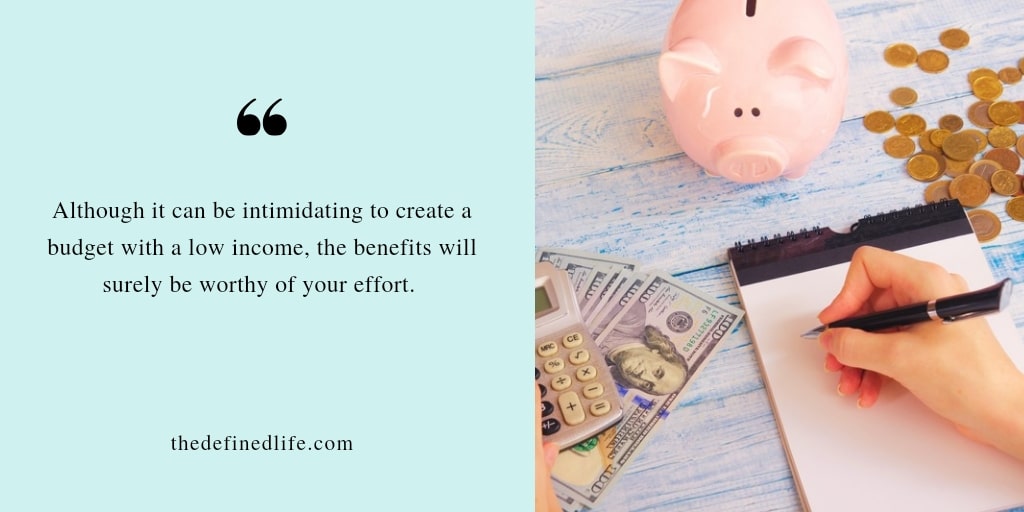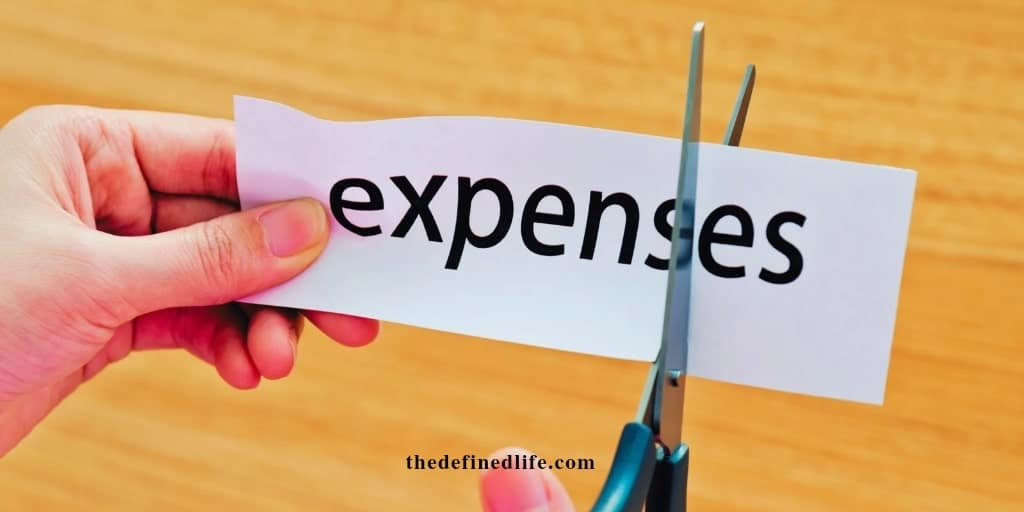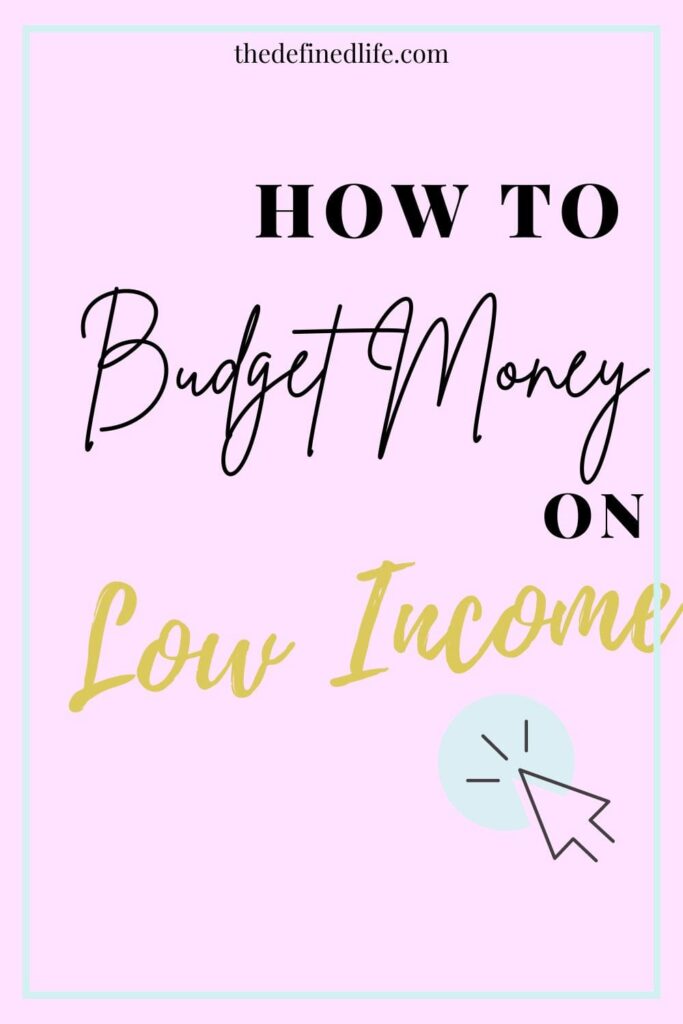
Budgeting is already challenging, and it is more if you are a low-income earner. Living on a low income is tough, but is not impossible if you have effective budgeting knowledge.
Although it can be intimidating to create a budget with a low income, the benefits will surely be worthy of your effort.
This blog post is all about how to budget money on low income. I will be sharing what I did to manage my finances when I started working and earning a minimal income. Looking back, I kept up with my home expenses and managed to be debt-free thanks to budgeting.
Table of Contents
Why is it important to budget money on a low income
Budgeting organizes our finances. Having a budget helps us evaluate our financial health. Another reason why a budget is important is it urge us to save money and have an emergency fund or life insurance to helps us prepare for unexpected expenses. By doing so, we can avoid relying on debts or credit cards.
Also, budgeting is important in guiding us in making healthy financial decisions, attaining financial goals, and keeping a peaceful mind.
Budgeting money on low income-should start with setting financial goals
Setting goals should always be the first step. Having a goal is like a compass that will guide us where to go. Goal setting is also undeniably important when making a budget with low income.
I learned that having a well-defined realistic financial goal is important in helping me be smart with my limited income and resources. Setting financial goals help us to achieve better understanding of where we are and where we want to be.

Start with small goals
You don’t always need a big grand goal to start improving your finances. What’s important is to have a realistic financial goal. For example, you can start budgeting to save money or to take care of a small debt. You will be surprised how these simple goals can earn you a big benefit in the future.
Prioritize your financial goals
Making a budget with low income means, that your resources is limited. Which means that prioritization of any of your financial goals is of utmost importance.
Because of low income, we should be clear about which goals can be most beneficial for us in the bigger picture. Without knowing or having an idea of which goals should be prioritized will make us feel stressed and unmotivated.

Be realistic with your goals
Being realistic with your financial goals is especially important given your current financial situation. It will not be helpful to blindly try to achieve goals that are not aligned with your current situation.
Failing to achieve even an unrealistic goal can make us feel frustrated and disappointed. It does not matter how small the steps are. What is important is how those small steps inch you closer to a worthy financial goal.
Budgeting money on a low income means looking at your income and expenses
Identify income sources
Identifying your sources of income is the next step in budgeting. You need to identify the income you will receive over time. In planning, you will need to accurately track all your sources of income to come up with a realistic budget.
Identifying sources of income is easier if you are receiving a wage or anything that is fixed and can easily be computed. However, other types of income may be irregular.
I tend to be conservative with irregular income when preparing my budget. That is, I use the expected minimum amount I can get from my irregular income. I do this to avoid overstating my income.
Understand your variable and fixed expenses
Your expenses should be classified according to their behaviour (Managerial Accounting Term) as fixed, variable, and mixed expenses. Fixed expenses pertain to expenses that are unchanged during your budgeting period, examples are:
- Rent
- Mortgage Payment
- Utilities that have fixed payment
- Subscription to something
- Debt payment
Variable expenses are the cost that is not fixed.
- Entertainment Expense
- Shopping Expense
Mixed expenses are expenses with fixed and variable share to each other:
- Food
- Travel
The items in each expense classification are solely based on my own experience. You can agree or disagree depending on your lifestyle. The thing to remember is to classify your expenses based on your historical spending.
Creating a budget
Now, creating a budget is easy once you identify your income and expense. My budget simply looks like this formula:
Income sources
Less: Variable Expenses
Less: Fixed Expenses
Savings (Debt)
If the result using this formula is positive, then you have a saving and if the result is negative, it can amount to possible debt. Of course, because of a limited income and unavoidable expenses, your budget may end up with a negative balance.
I used to be disheartened whenever I see that my budget is so close to having a negative balance. But I understand that creating a budget is only a tool to see how I do financially and help me improve my current financial situation.
Find ways to earn more
To budget with low income is a go signal to take the initiative of increasing your income sources. You need not rely on one income source. Instead, you can start side hustles, offering your services as a freelancer, or selling things you no longer need.
You need to put in extra effort if you want to find ways to earn more. You may need to improve your skills, think creatively, and do a lot of research. However, all the effort and time you will put into increasing your income sources are all worth it. It will not only increase your income but it will also open greater opportunities.
Reducing your expenses

I discussed previously how we as accountants, categorize the expenses. Your expenses can either be variable or fixed. In reducing expenses, you must focus more on the variable expenses. What you can do about the fixed expenses is to decide if you can completely get rid of them, like my examples about subscriptions.
We sometimes ignore small repeated amount of spending, but with proper evaluation of your expenses, you’ll realize how much that small amount is eating a big slice of your income.
Sticking to your budget
Lastly and probably the most challenging is sticking to your budget plan. Spending habits and old money mindset can take a long time to change. But with consistency and discipline, you can budget your money effectively even with a low income.
Ensure that you are staying on track by reviewing your budget regularly. Budgets are not meant to be the same forever! That is why reviewing and adjusting your budget accordingly are important to keep it relevant.
Changing your mindsets and habits can be helpful for you to stick with your budget. Temporarily, as you are now working to increase your earnings, you will need to be honest with yourself. There is no shame in admitting that you cannot afford some things in your current situation.
Surround yourself with people that will guide you in your plan of sticking to your budget. Find people, family, or friends that will offer support, be it financial or emotional, in your journey of improving your finances.
Final thoughts on how to budget money on low income

Budgeting is here to make sure that our actions and habits are leading us to a better financial future. Budgeting with a low income is indeed a challenge. But on the other hand, budgeting during this time is most important.
Acknowledging that you have limited income sources now can be uncomfortable. But things do not need to stay the same. Accepting your shortcomings can open your eyes and push you to work harder. Budgeting starts with your intention of improving your financial life.
With commitment and consistency, budgeting money with a low income is surely doable.
Love,








Leave a Reply